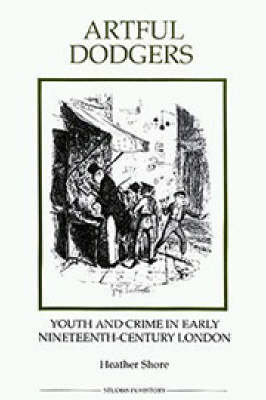Royal Historical Society Studies in History
1 total work
The early nineteenth century witnessed an increasing concern about the incidence of juvenile crime. Youthful delinquency was not new, but it was not until then that the foundations were laid for a juvenile justice system which would serve, with amendments, for the next century and more. Separate trial, separate penal provision, and an emphasis on reform rather than punishment were all enshrined in the new legislation.Heather Shore explores the processesand context of these legislative strategies, in which consideration of juvenile crime in London - with its close streets and alleys and conspicuous juxtaposition of poverty and wealth - played a major part, influencing elite perceptions of offending by children and young people. At the heart of this study is a critical consideration of the lives of young offenders. Dr Shore examines the process of offending, from the initial foray into crime, through apprehension and passage through the judicial system, to punishment and experience of penal and reform measures: prison, houses of correction, transportation and colonial emigration. HEATHER SHORE is Lecturer in Social and Cultural History, University of Portsmouth.
